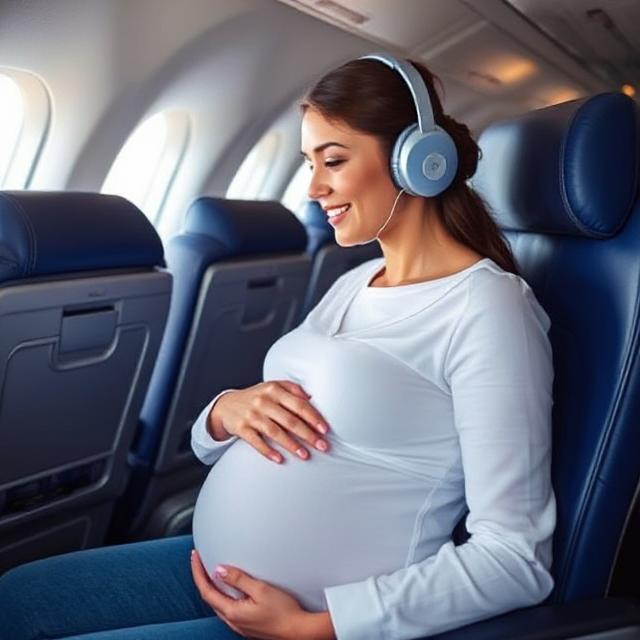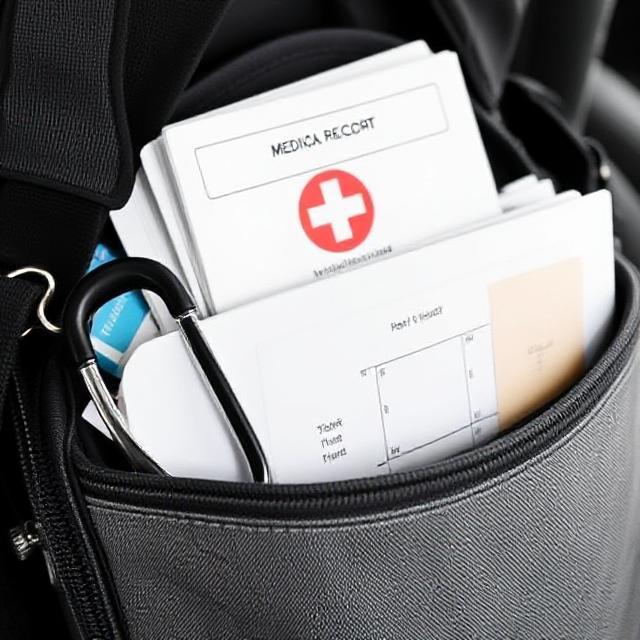Flying Safe During Pregnancy depends on the trimester and health conditions of the expectant mother. In most cases, air travel is considered safe during the second trimester (weeks 14–28) when the risk of complications is lower. Airlines may have restrictions for women beyond 36 weeks of pregnancy. It is advisable to consult a doctor before flying, especially for those with high-risk pregnancies. Staying hydrated, moving periodically, and wearing compression socks can help prevent discomfort and blood clots. Overall, Flying Safe During Pregnancy is possible with proper precautions and medical approval, ensuring both mother and baby’s well-being.

Is Flying Safe During Pregnancy?
Flying during pregnancy is generally considered safe for most women, provided there are no complications. However, certain precautions and guidelines should be followed to ensure the health and safety of both the mother and the baby. Below is a detailed, doctor-approved guide on flying during pregnancy.
1. When Is It Safest to Fly During Pregnancy?
-
First Trimester (Weeks 1-12):
-
Generally safe, but some women experience nausea, fatigue, or morning sickness, which can make flying uncomfortable.
-
There is no evidence that flying increases miscarriage risk, but consult your doctor if you have a high-risk pregnancy.
-
-
Second Trimester (Weeks 13-28):
-
The best time to fly, as morning sickness usually subsides, energy levels improve, and the risk of complications is lower.
-
-
Third Trimester (Weeks 29-40):
-
Many airlines restrict travel after 36 weeks for single pregnancies and 32 weeks for multiples (twins/triplets).
-
Increased risk of preterm labor, blood clots, and discomfort makes late-pregnancy travel less advisable.
-
2. Airline Policies & Restrictions
-
Most airlines allow pregnant women to fly up to 36 weeks (some require a doctor’s note after 28 weeks).
-
Carriers like Delta, American Airlines, and British Airways have specific pregnancy travel policies—check before booking.
-
International flights may have stricter rules; always confirm with the airline.
3. Doctor’s Approval & Medical Considerations
Before flying, consult your obstetrician, especially if you have:
-
High-risk pregnancy (history of preterm labor, preeclampsia, placenta previa).
-
Multiple pregnancies (twins/triplets).
-
Gestational diabetes or hypertension.
-
History of blood clots or deep vein thrombosis (DVT).
Your doctor may recommend:
-
Compression stockings (to improve circulation).
-
Low-dose aspirin or blood thinners (if at risk for clots).
-
Avoiding long flights (over 4-5 hours) in late pregnancy.
4. Health Risks of Flying While Pregnant
-
Blood Clots (DVT):
-
Prolonged sitting increases the risk. Walk every 1-2 hours, stretch legs, and wear compression socks.
-

-
Lower Oxygen Levels:
-
Cabin air pressure is safe, but if you have anemia or breathing issues, consult a doctor.
-
-
Radiation Exposure:
-
Minimal at cruising altitude, but frequent flyers (e.g., flight attendants) should monitor exposure.
-
-
Dehydration & Fatigue:
-
Drink plenty of water, avoid caffeine, and rest often.
-
5. Tips for a Comfortable & Safe Flight
-
Choose an aisle seat for easy bathroom access and movement.
-
Wear loose, comfortable clothing and supportive shoes.
-
Stay hydrated (avoid carbonated drinks to reduce bloating).
-
Move frequently (walk, stretch, or do seated leg exercises).
-
Bring snacks (nuts, fruits, whole grains) to maintain energy.
-
Carry medical records (in case of emergencies).

6. When to Avoid Flying
-
After 36 weeks (risk of labor).
-
If you have spotting, contractions, or severe swelling.
-
If diagnosed with placenta previa or preeclampsia.
-
If your doctor advises against it due to complications.
Final Verdict: Is Flying Safe in Pregnancy?
✅ Yes, for most low-risk pregnancies with precautions.
❌ No, if high-risk or near delivery.
Always consult your doctor, follow airline policies, and prioritize comfort. Safe travels!
